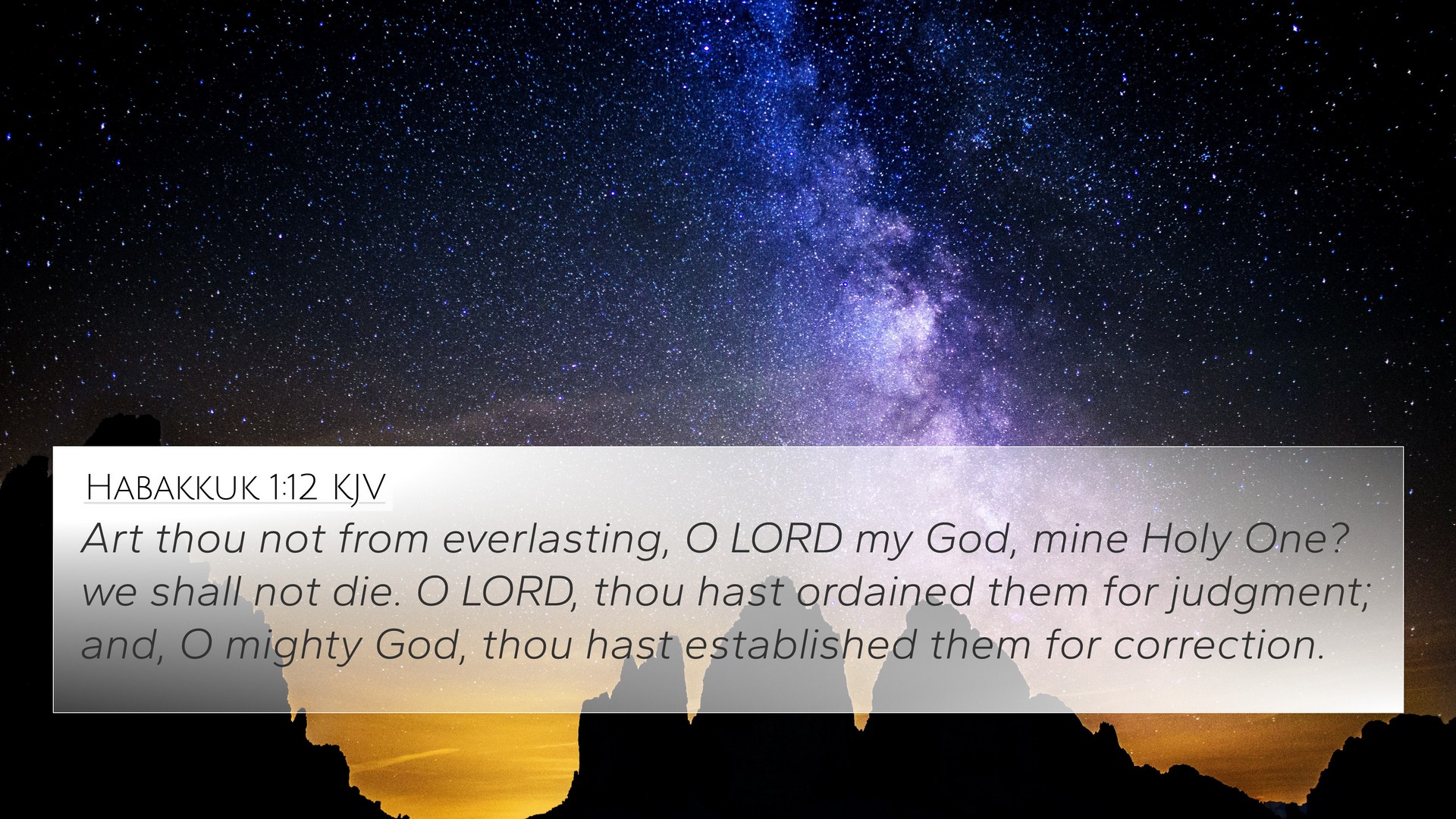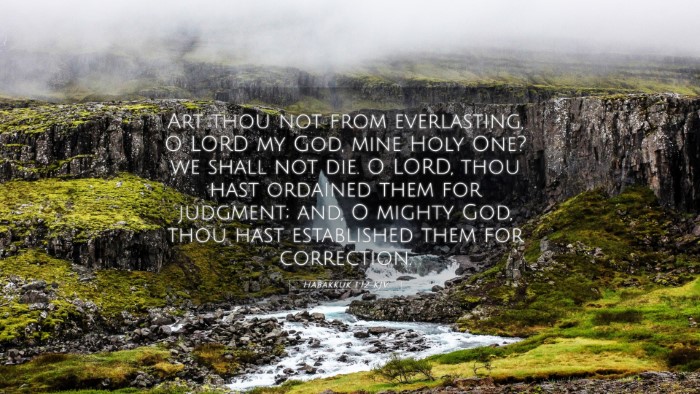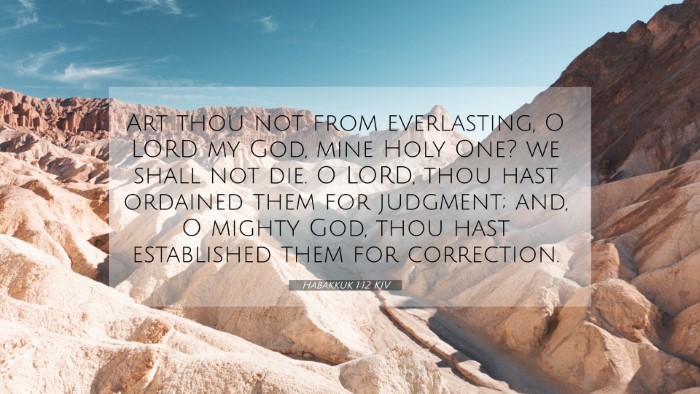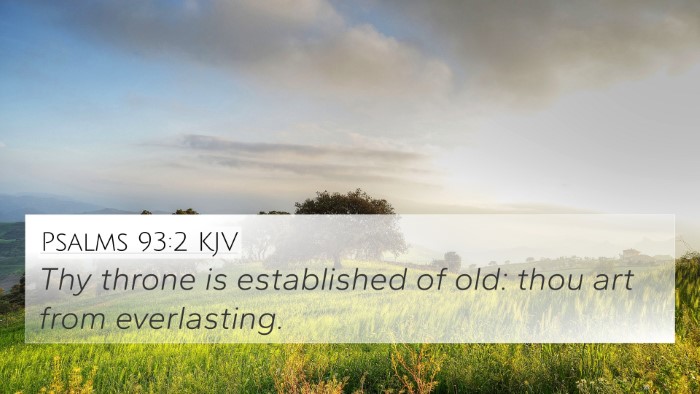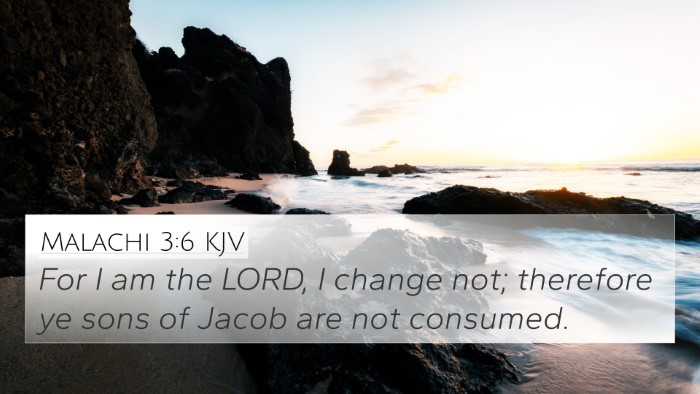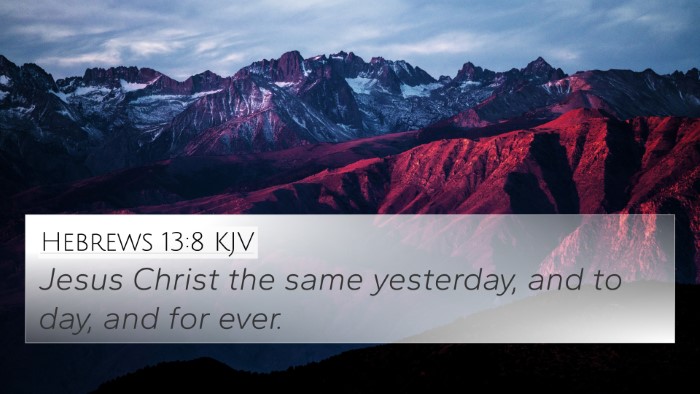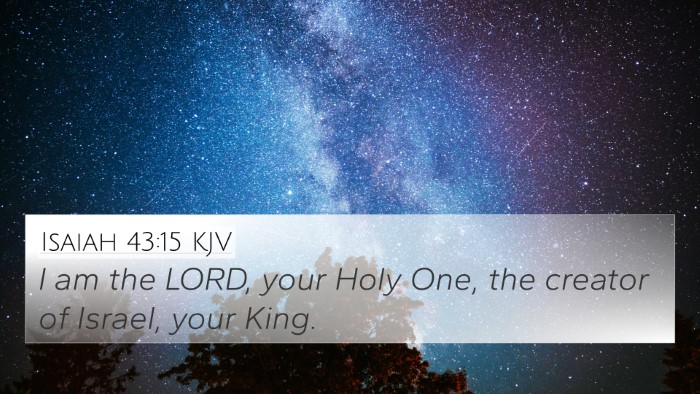Old Testament
Genesis Exodus Leviticus Numbers Deuteronomy Joshua Judges Ruth 1 Samuel 2 Samuel 1 Kings 2 Kings 1 Chronicles 2 Chronicles Ezra Nehemiah Esther Job Psalms Proverbs Ecclesiastes Song of Solomon Isaiah Jeremiah Lamentations Ezekiel Daniel Hosea Joel Amos Obadiah Jonah Micah Nahum Habakkuk Zephaniah Haggai Zechariah MalachiHabakkuk 1:12 Similar Verses
Habakkuk 1:12 Cross References
Art thou not from everlasting, O LORD my God, mine Holy One? we shall not die. O LORD, thou hast ordained them for judgment; and, O mighty God, thou hast established them for correction.
Uncover the Rich Themes and Topics of This Bible Verse
Listed below are the Bible themes associated with Habakkuk 1:12. We invite you to explore each theme to gain deeper insights into the Scriptures.
Habakkuk 1:12 Cross Reference Verses
This section features a detailed cross-reference designed to enrich your understanding of the Scriptures. Below, you will find carefully selected verses that echo the themes and teachings related to Habakkuk 1:12 KJV. Click on any image to explore detailed analyses of related Bible verses and uncover deeper theological insights.
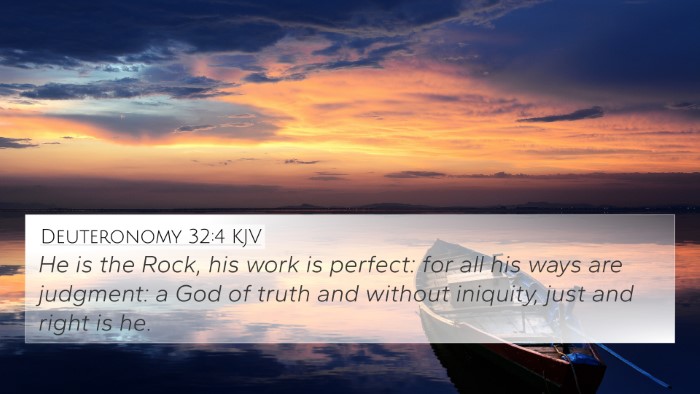
Deuteronomy 32:4 (KJV) »
He is the Rock, his work is perfect: for all his ways are judgment: a God of truth and without iniquity, just and right is he.
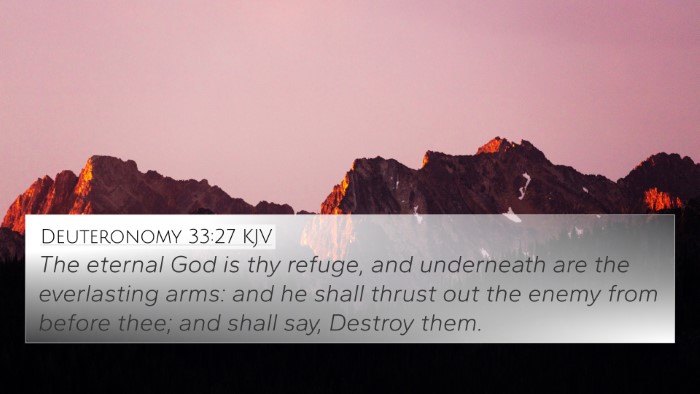
Deuteronomy 33:27 (KJV) »
The eternal God is thy refuge, and underneath are the everlasting arms: and he shall thrust out the enemy from before thee; and shall say, Destroy them.
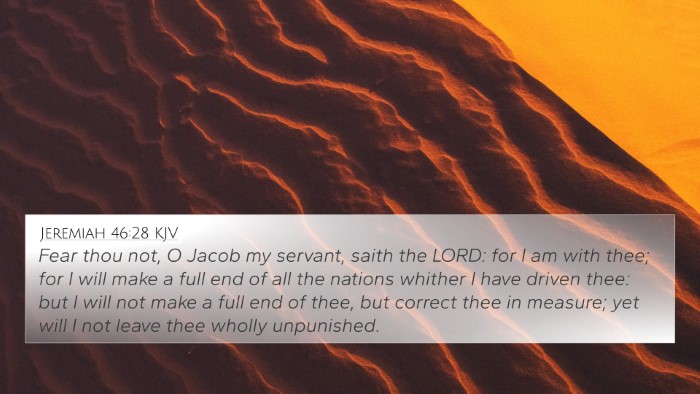
Jeremiah 46:28 (KJV) »
Fear thou not, O Jacob my servant, saith the LORD: for I am with thee; for I will make a full end of all the nations whither I have driven thee: but I will not make a full end of thee, but correct thee in measure; yet will I not leave thee wholly unpunished.
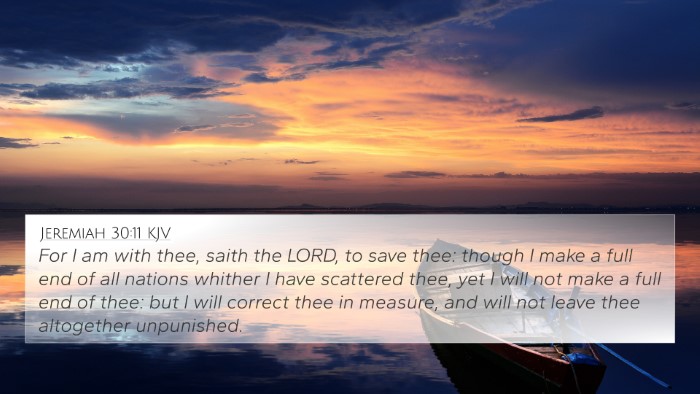
Jeremiah 30:11 (KJV) »
For I am with thee, saith the LORD, to save thee: though I make a full end of all nations whither I have scattered thee, yet I will not make a full end of thee: but I will correct thee in measure, and will not leave thee altogether unpunished.
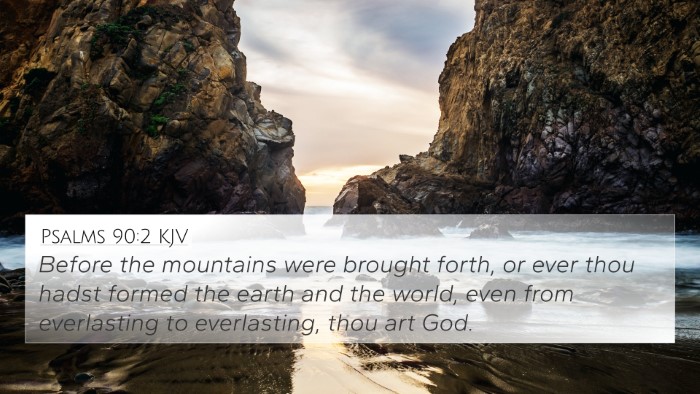
Psalms 90:2 (KJV) »
Before the mountains were brought forth, or ever thou hadst formed the earth and the world, even from everlasting to everlasting, thou art God.
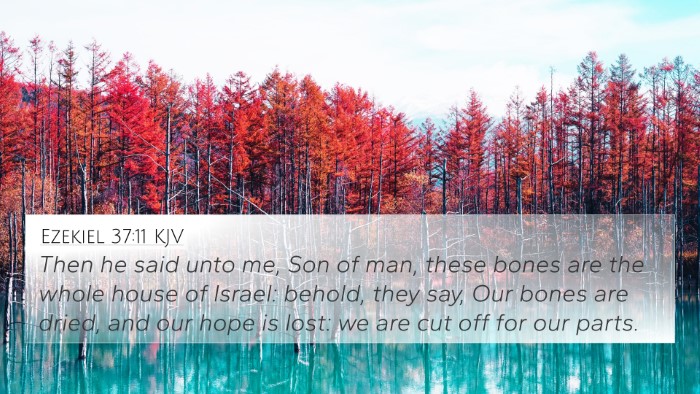
Ezekiel 37:11 (KJV) »
Then he said unto me, Son of man, these bones are the whole house of Israel: behold, they say, Our bones are dried, and our hope is lost: we are cut off for our parts.
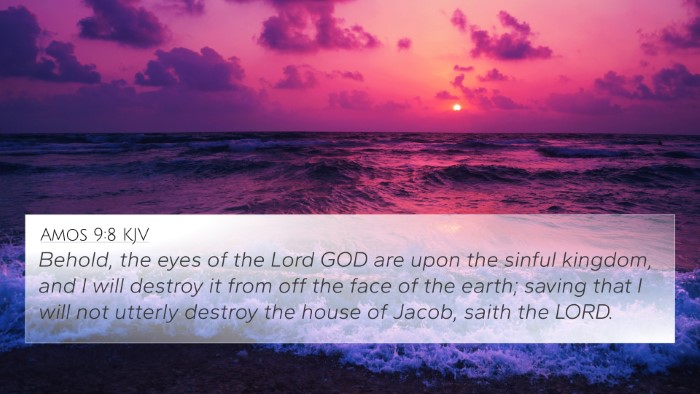
Amos 9:8 (KJV) »
Behold, the eyes of the Lord GOD are upon the sinful kingdom, and I will destroy it from off the face of the earth; saving that I will not utterly destroy the house of Jacob, saith the LORD.
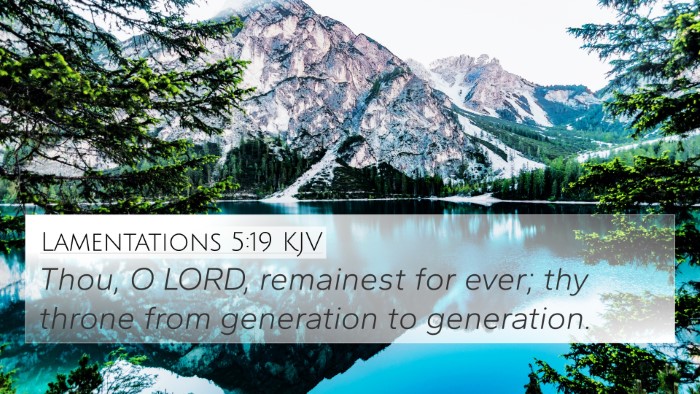
Lamentations 5:19 (KJV) »
Thou, O LORD, remainest for ever; thy throne from generation to generation.
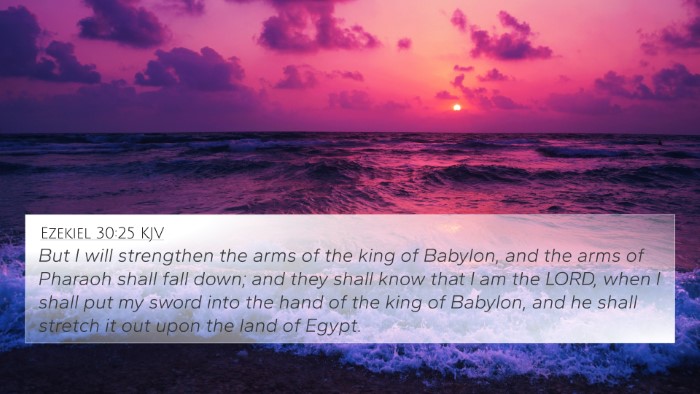
Ezekiel 30:25 (KJV) »
But I will strengthen the arms of the king of Babylon, and the arms of Pharaoh shall fall down; and they shall know that I am the LORD, when I shall put my sword into the hand of the king of Babylon, and he shall stretch it out upon the land of Egypt.

Micah 5:2 (KJV) »
But thou, Bethlehem Ephratah, though thou be little among the thousands of Judah, yet out of thee shall he come forth unto me that is to be ruler in Israel; whose goings forth have been from of old, from everlasting.
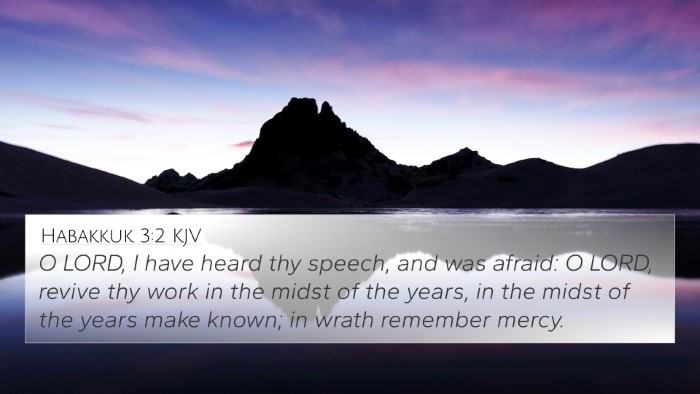
Habakkuk 3:2 (KJV) »
O LORD, I have heard thy speech, and was afraid: O LORD, revive thy work in the midst of the years, in the midst of the years make known; in wrath remember mercy.
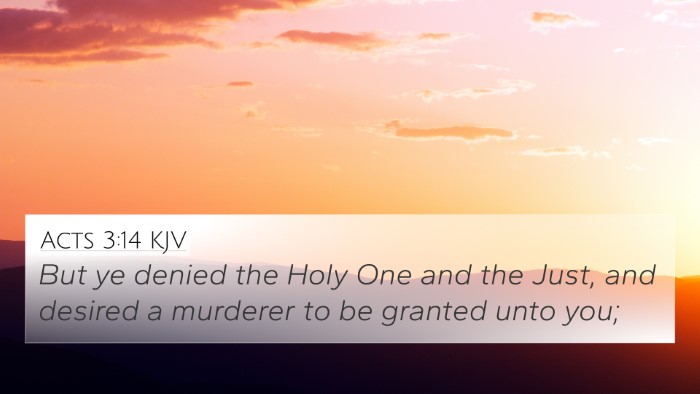
Acts 3:14 (KJV) »
But ye denied the Holy One and the Just, and desired a murderer to be granted unto you;
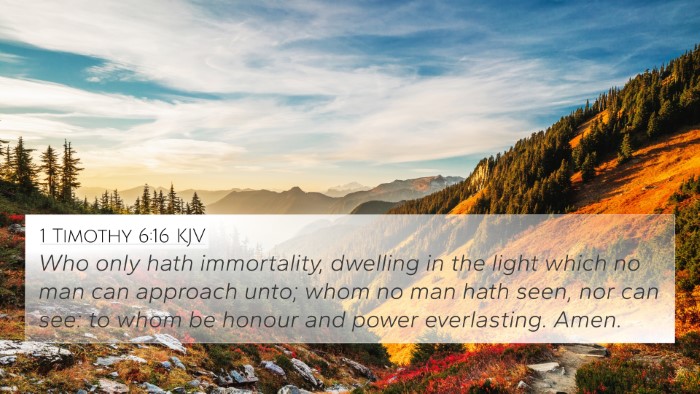
1 Timothy 6:16 (KJV) »
Who only hath immortality, dwelling in the light which no man can approach unto; whom no man hath seen, nor can see: to whom be honour and power everlasting. Amen.
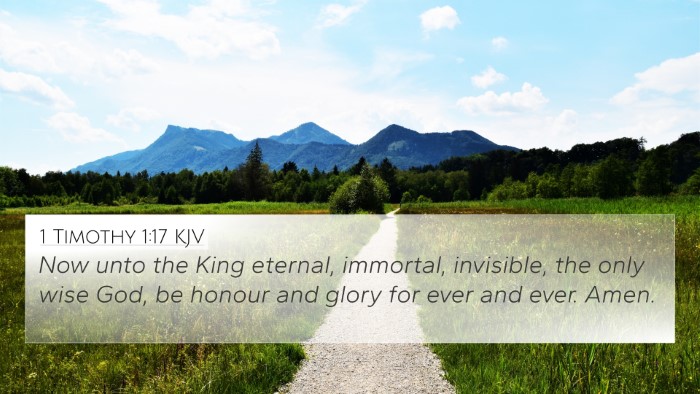
1 Timothy 1:17 (KJV) »
Now unto the King eternal, immortal, invisible, the only wise God, be honour and glory for ever and ever. Amen.
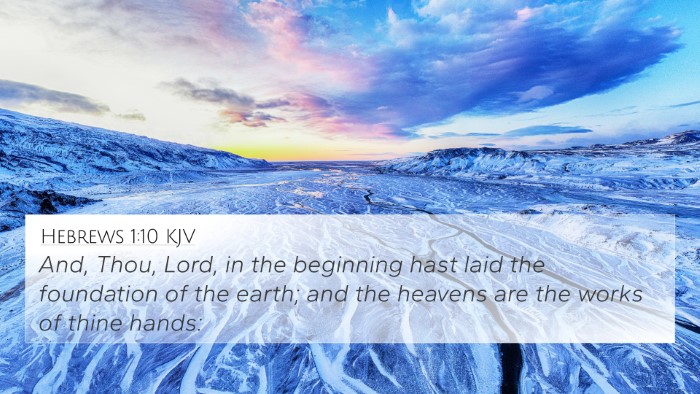
Hebrews 1:10 (KJV) »
And, Thou, Lord, in the beginning hast laid the foundation of the earth; and the heavens are the works of thine hands:
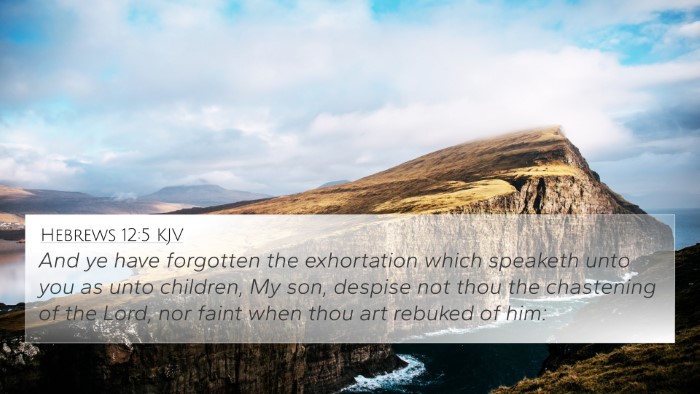
Hebrews 12:5 (KJV) »
And ye have forgotten the exhortation which speaketh unto you as unto children, My son, despise not thou the chastening of the Lord, nor faint when thou art rebuked of him:
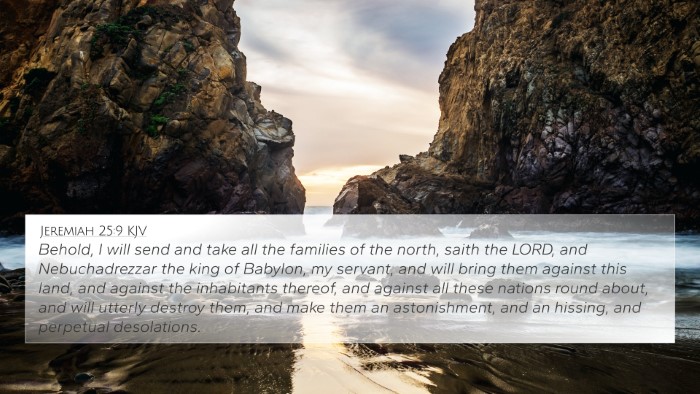
Jeremiah 25:9 (KJV) »
Behold, I will send and take all the families of the north, saith the LORD, and Nebuchadrezzar the king of Babylon, my servant, and will bring them against this land, and against the inhabitants thereof, and against all these nations round about, and will utterly destroy them, and make them an astonishment, and an hissing, and perpetual desolations.
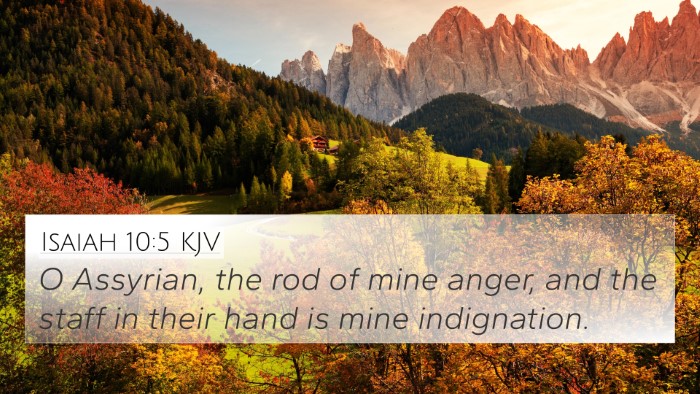
Isaiah 10:5 (KJV) »
O Assyrian, the rod of mine anger, and the staff in their hand is mine indignation.
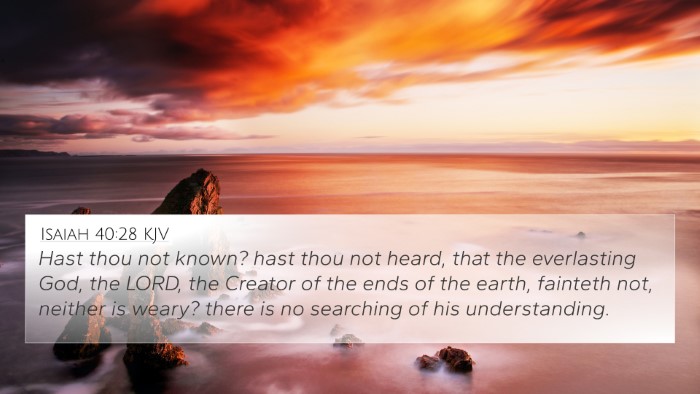
Isaiah 40:28 (KJV) »
Hast thou not known? hast thou not heard, that the everlasting God, the LORD, the Creator of the ends of the earth, fainteth not, neither is weary? there is no searching of his understanding.
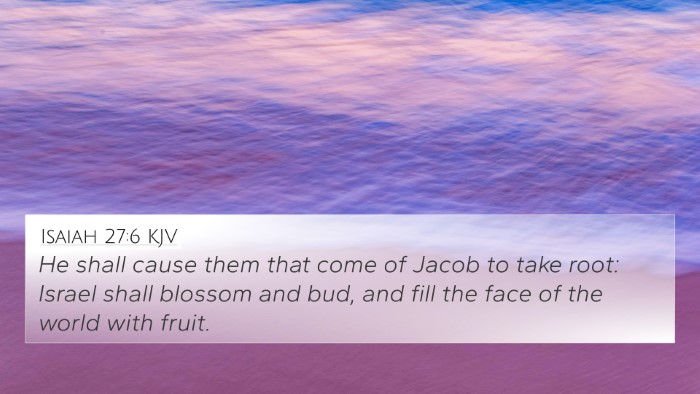
Isaiah 27:6 (KJV) »
He shall cause them that come of Jacob to take root: Israel shall blossom and bud, and fill the face of the world with fruit.
Habakkuk 1:12 Verse Analysis and Similar Verses
Understanding Habakkuk 1:12
Bible Verse: Habakkuk 1:12 - "Art thou not from everlasting, O Lord my God, mine Holy One? we shall not die. O Lord, thou hast ordained them for judgment; and, O mighty God, thou hast established them for correction."
Summary of Insights from Commentaries
This verse begins with a profound acknowledgment of God’s eternal nature and holiness. Habakkuk expresses both reverence and assurance in the face of impending judgment. The prophet highlights God's characteristic as everlasting and holy, laying a foundation for understanding God’s actions in the world.
Key Themes
- Eternality of God: Habakkuk recognizes God’s existence beyond time, affirming that He is unchanging and everlasting, which comforts believers during turmoil.
- The Holiness of God: Addressing God as "mine Holy One," signifies acknowledgment of His purity and the moral order He upholds, which relates to His sovereignty over judgment.
- Assurance of Preservation: The phrase "we shall not die" shows an understanding that despite judgment, God’s people will ultimately be preserved, reflecting themes of hope and deliverance.
- Divine Judgment and Correction: Habakkuk’s declaration of God ordaining the Chaldeans for judgment conveys the idea that God uses nations for chastisement of His people, a theme echoed throughout scripture.
Cross-References
This verse connects with various others throughout the Bible, enhancing understanding through Bible verse cross-references:
- Isaiah 40:28: Illustrates God's everlasting nature.
- Psalms 90:2: Affirms the eternity of God.
- Romans 8:31-39: Conditions of assurance and preservation for God’s people.
- Jeremiah 10:10: Details God's unique holiness over false gods.
- Malachi 3:6: Highlights God’s unchanging nature.
- 2 Peter 3:9: Discusses God’s patience and intent concerning judgment.
- Hebrews 12:6: Emphasizes God’s corrective measures toward His children.
- Habakkuk 2:4: Introduces the principle of faith amid judgment.
- Ephesians 2:8-10: Affirms that salvation is a work of God, connecting to His order in correction.
- 1 Timothy 1:17: Reflects on God's eternal nature and majesty.
Detailed Analysis of Themes
Eternality of God
Habakkuk focuses on the eternal attributes of God, which is pivotal to understanding His dealings with humanity. Matthew Henry notes that recognizing God's eternal nature provides an anchor for faith, especially in times of uncertainty. This knowledge reassures believers that God’s plans extend beyond immediate circumstances.
Holiness of God
By referring to God as "Holy One," Habakkuk emphasizes the purity and righteousness of God's character. Albert Barnes articulates the importance of holiness in the context of divine judgment; it implies that all actions taken by God are steeped in justice. God's holiness is therefore the underpinning of moral order in the cosmos.
Assurance of Preservation
Despite the foreboding message of judgment, Habakkuk clings to the promise of life. Adam Clarke elaborates on the idea that God’s people will endure through trials, which reflects the theme of divine covenant and protection even amid correction. This connects to a broader narrative in scripture about God’s unwavering commitment to His covenant people.
Divine Judgment and Correction
The acknowledgment that God uses the Chaldeans as instruments of judgment illustrates the notion of divine sovereignty. Commentary from Matthew Henry suggests that God sometimes employs even the unrighteous to fulfill His purposes, a concept that can be seen across the Old and New Testament parallel narratives.
Thematic Connections and Links
The connections between Bible verses deepen the understanding of Habakkuk 1:12. When studying the Bible, recognizing connections between Bible verses provides clarity regarding God’s character and His interaction with humanity.
For those engaging in a comparative study of scripture, using tools such as a Bible concordance or a Bible cross-reference guide can illuminate thematic links and reinforce the overarching narrative of redemption and judgment found in both the Old and New Testaments. The analytical approach of linking scripture also promotes a richer understanding of theology.
Conclusion
In summary, Habakkuk 1:12 is rich with theological implications. Understanding this verse requires not only a deep reflection on its content but also an examination of its relationship with other pertinent scriptures. Using scriptural cross-referencing enhances the study of biblical themes, allowing for greater insight into the character of God and His purposes for humanity.
As you explore Habakkuk and its meanings, consider the cross-referenced themes in the Bible and how they contribute to your understanding of God’s plan. Engaging in Bible cross-reference study methods can significantly aid in comprehending the layered meanings contained within the text.
